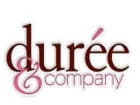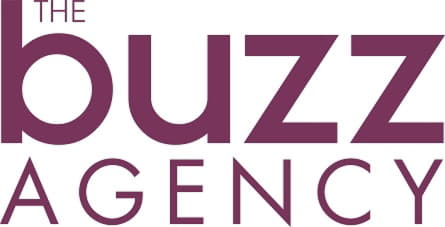Help or hurt?
That's the question investors are trying to answer about how President Trump's policies might impact healthcare stocks. So far, specific policy proposals put forward by the president appear likely to cause significant problems for certain healthcare stocks. Here's why three of President Trump's policies could be downright terrible for Molina Healthcare (NYSE:MOH), Mallinckrodt (NYSE:MNK), and Illumina (NASDAQ:ILMN).

IMAGE SOURCE: GETTY IMAGES.
Obamacare repeal
President Trump and the GOP-led Congress have made it clear that repealing Obamacare is a top priority. While most Americans are focused on how a repeal would impact the individual health insurance market, a roll-back of the Medicaid expansion spurred by the Affordable Care Act would also be disruptive. Molina Healthcare would be hit hard by both changes.
Seven of the 12 states where Molina operates opted to expand Medicaid using federal money provided by Obamacare. Around 15% of Molina's total membership comes from Medicaid expansion in those states. The premiums paid for these members represent revenue of roughly $3 billion annually for Molina. Another 13% of Molina's membership comes from the Obamacare exchanges. This block of business generates around $1.5 billion in annual revenue for the company.
Molina probably doesn't stand to lose all of that combined $4.5 billion in revenue if Obamacare is fully repealed. It's possible that whatever replaces the health reform legislation could help preserve at least some of the Medicaid expansion achieved in the last few years. Some states could potentially continue funding Medicaid enough to avoid a full roll-back even without additional federal assistance.
Also, Molina would likely still have an opportunity to keep some of the members who obtained insurance through the Obamacare exchanges with other health coverage. However, no matter how you look at it, Obamacare repeal presents a double-whammy for Molina's revenue and earnings.
Medicare pricing changes
President Trump wants to allow Medicare to directly negotiate drug prices. That could be great for U.S. taxpayers, but it's also bad news for some drugmakers. Mallinckrodt appears to be one of the companies with the most to lose.
In 2015, Medicare spent nearly $504 million on Mallinckrodt's H.P. Acthar gel -- that's nearly half of the total revenue the company made from the drug during the year. If that weren't bad enough, sales for H.P. Acthar generate over a third of the company's total revenue. If Medicare is allowed to negotiate drug prices, then it could be a big problem for Mallinckrodt for a couple of reasons.
First, H. P. Acthar is the single most expensive drug for the federal healthcare program in terms of spending per user. That could put a big bull's-eye on the drug if Medicare is allowed to directly negotiate drug prices. It certainly won't help that one major private health-insurer heavily restricts coverage for H.P. Acthar due to questions about its efficacy, while some researchers question H.P. Acthar's value proposition.
Second, Mallinckrodt's strategy is to increase the proportion of sales dependent on Medicare: CEO Mark Trudeau stated in the company's third-quarter earnings call that Mallinckrodt is focusing more on indications that affect older people.
The major unknown is how low Medicare will be able to negotiate drug prices should President Trump's proposed policy be enacted. Mallinckrodt's unique situation could make it more vulnerable than most to huge price cuts.
Trade policy with China
It's not just President Trump's healthcare policies that might affect healthcare stocks. His trade policies, particularly with China, could also take a toll on companies that depend heavily on sales to the growing economic power. Genomic sequencing leader Illumina is especially vulnerable.
Illumina made nearly $380 million from its Asia-Pacific region in 2015, accounting for 17% of total revenue. China is the largest market for the company in the region.

IMAGE SOURCE: GETTY IMAGES.
To get an idea of how important China is to Illumina's future, just look at the company's sales growth in the fourth quarter of 2016. Sales in the Americas declined 4% year over year. European sales increased 11%. But sales in China soared around 50% -- more than any other geographical territory by far.
Illumina is shipping more of its desktop NextSeq sequencing systems to China because of higher demand for non-invasive prenatal testing (NIPT). The oncology testing market in the country is growing. Probably the biggest story, though, is China's precision medicine initiative. The Chinese government plans to invest over $9 billion funding projects as part of this initiative, which represents a huge opportunity for Illumina in selling its high-throughput sequencing systems.
President Trump has threatened in the past to label China as a currency manipulator and impose 45% tariffs on imports from the country. Should that happen, there is little doubt that China will retaliate -- leaving companies such as Illumina feeling the pain.
Lots of questions
Molina, Mallinckrodt, and Illumina could face serious problems stemming from some of President Trump's proposed policies -- but they could also be helped by the president's corporate tax reform proposals. Could lower taxes be enough to offset the potential damage to these three companies? It depends.
For Molina, the negative impact of an Obamacare repeal hinges largely on what comes next. Mallinckrodt's downside from giving Medicare the ability to negotiate drug prices depends on how much the federal healthcare program will pay for H.P. Acthar. Illumina's growth prospects depend on how ugly things get between the U.S. and China.
Of course, there's the possibility that some of the president's proposed changes go through changes themselves over the next few months. How much will Trump administration policies help or hurt these and other healthcare stocks? There are still lots of unanswered questions.
Trump's potential $1.6 trillion investment
We aren't politicos here at The Motley Fool. But we know a great investing opportunity when we see one.
Our analysts spotted what could be a $1.6 trillion opportunity lurking in Donald Trump's infrastructure plans. And given this team's superb track record (more than doubling the market over the past decade*), you don't want to miss what they found.
They've picked 11 stocks poised to profit from Trump's first 100 days as president. History has shown that getting in early on a good idea can often pay big bucks – so don't miss out on this moment.



















